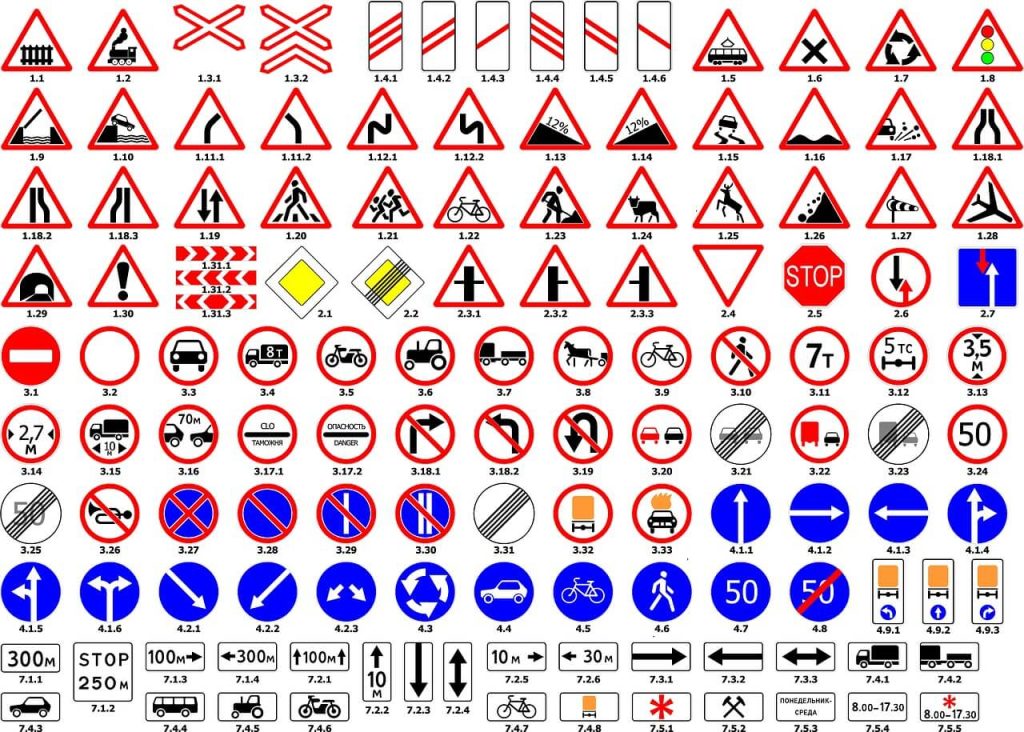Driving in Pakistan can be challenging due to heavy traffic and often chaotic road conditions. To ensure your safety on the road, you must be familiar with the traffic rules and regulations. This guide will give an overview of the traffic rules in Pakistan, including road signs and signals, speed limits, seat belts, child safety seats, driving under the influence (DUI), and traffic violations and penalties.
Guide to Traffic Rules in Pakistan for All
Here are all the traffic rules in Pakistan that should be followed by every person living in Pakistan. There are lots of HTV and LTV driver for these traffic rules to follow especially rent a car service drivers.
1. Road Signs and Signals
Signs and signals are an important part of navigating Pakistani roads. To stay safe on the road, it is vital to understand the meaning of each sign and signal. The following are some common road signs and signals:
-
Stop Signs
An octagon with the word “STOP” in English and Urdu. This sign indicates that you must come to a complete stop and wait until it is safe to proceed.
-
Yield Signs
Triangle with red and white on top. The sign warns you to slow down and prepare to stop in an emergency.
-
No Entry Signs
A red circle with a horizontal white bar. This sign indicates that you are not permitted to enter this area.
-
Speed Limit Signs
A white circle with a red border and a number indicates the maximum speed limit. On this particular road, this sign indicates the maximum speed limit.
-
Traffic Lights
A red light means stop, a yellow light means caution and a green light means go. You must follow the rules of the road and pay attention to the traffic lights.
2. Speed Limits
Pakistan enforces speed limits to ensure the safety of drivers and pedestrians. Avoiding traffic violations and accidents requires following posted speed limits. Highways have a speed limit of 120 km/h, while urban areas typically have a speed limit of 60 km/h. Make sure you adjust your speed according to the road and weather conditions. To avoid accidents, reduce your speed in foggy or rainy weather.
3. Seat Belts and Child Safety
Seat belts are mandatory for all passengers and drivers of vehicles in Pakistan. A seat belt can reduce the risk of injury in an accident. A child safety seat is required for children under 12 years of age. The driver is responsible for ensuring all passengers wear seat belts and that children are properly secured in child safety seats.
4. Driving Under the Influence (DUI)
Drugs and alcohol are strictly prohibited while driving in Pakistan. DUI penalties include fines and imprisonment. Pakistan limits BAC to 0.02%. You should avoid drinking and driving to ensure your and others’ safety.
5. Traffic Violations and Penalties
In Pakistan, traffic violations can result in fines, imprisonment, or both. You must follow traffic rules and regulations for your safety on the road. Traffic violations and their corresponding penalties are listed below:
-
Driving without a valid license:
Up to 5,000 rupees in fines. In Pakistan, driving without a license is illegal. Get a valid driver’s license before you get behind the wheel.
-
Driving under the influence of drugs or alcohol:
Up to 5000 rupees fine and three months imprisonment. Drunk or drugged driving is a serious offense in Pakistan with severe penalties.
-
Speeding
A fine of up to Rs. 750 and imprisonment for up to one month. Speeding is a common traffic violation in Pakistan and can result in fines
-
Using a Mobile Phone While Driving
Using a mobile phone while driving is a dangerous distraction and can lead to a fine of up to PKR 1,000.
-
Seat Belt Violation
Safety is more important than traffic rules regarding wearing a seatbelt. Offenders can be fined PKR 750.
-
Red Light Violation
Running a red light is a serious violation and can result in a fine of up to PKR 1,000.
-
Overloading
Pakistani drivers often need to overload their vehicles beyond their capacity. The violation of traffic rules can result in a PKR 5,000 fine.
In Pakistan, traffic rules and regulations are crucial in ensuring road safety. These rules are essential for your, your passengers, and other road users’ safety.


